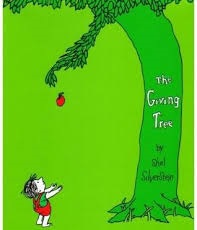This week's reflection is written by
Rev. Richard R. DeLillio, OSFS
A tired looking Ted was having lunch with his brother Luke, who remarked. “Geez Ted you look beat. What’s happening?” In a weary tone Ted answered, “It seems all I do is work, work, work, providing food and stuff for Dot plus saving a little for the kids’ futures, but I never seem to make ends meet.” Ted added “Don’t get me wrong Luke, I love my family, but it just isn’t fun anymore.”
Luke didn’t know what to say, because he often feels the same way. He simply sat thinking quietly: Surely Jesus doesn’t want family life to be like this.? What is the Lord’s vision then?
Jesus’ dream for his creation is always to live the great commandment: loving God and loving neighbors responsibly especially “those neighbors” within the family. Why? Family is the perfect place to show caring, generosity, and kindheartedness for one another. In doing so, the family shows God their gratitude. “What you do for these least of my creation you do for me.” God always blesses those who care for others especially those with less and those who need extra care.
The famous ”The Giving Tree” tale shows a tree who does just that for a boy’s love while giving us a lesson on how to do it. They both begin happily playing together every day, but the boy grows and soon desires adult frills: money, a house, a family, and a love for travel.
The caring tree offers all it has to satisfy the boy: its apples to sell, its branches for a house, and its trunk for a boat. What’s left is only a stump for the tired boy to rest. Finally, the tree rests enveloped in happiness, while the greedy “boy” sits alone and hollow.
What works against this noble task is choosing what exactly is "enough?” Like Ted and Luke everyone struggles with this choice. It weighs heavily on the outcome of this mission to love another.
As the little boy did in the story, the need for more can push humanity far beyond necessary limits. It can push a good intention far outside actual needs until it devours all that is rational.
In this pursuit it’s easy to become entangled in things “passing away.” In Jesus’ parable of the greedy farmer, he wants to store away his goods: “I shall tear down my barns and build bigger ones.” It is almost as if he believes that he and his wealth will live forever. However, at this point death makes an appearance and all the farmer’s efforts dissolve in a single instant. If he had even thought of sharing his riches with his neighbors, family, or the poor, he would be praised as a disciple wise in the teachings of Jesus, but he did not.
Jesus isn’t relating this parable to frighten believers about the likelihood of early death, or even the option of quitting work altogether. It is simply an injection of reality. Jesus wants his disciples to live on earth with one foot already in heaven. How? He wants followers, like Luke and Ted, and everyone else to remember not to lose themselves in the fleeting time we pass on this earth forgetting “that which lies above.”
At the same time, Jesus denounces “all those who store up treasure for themselves. St. Paul also joins this chorus urging his converts “to put to death, the parts of you that are earthly” in order to avoid greed and immorality. With our Christian values embedded in our hearts, followers have the necessary treasures in the right places.
Throughout His preaching Jesus always shared practical advice on how to live with our loved ones on this earth. He asks that like the loving giving tree, believers be good providers take care of their concerns that his Father requests, work diligently, but keep the heavenly horizon in sight. Ted, Luke, and all of us can truly benefit from Jesus' suggestion.
St. Francis de Sales has the final word:
“You may possess riches without being poisoned by them if you keep them in your house or purse and not in your heart.”




